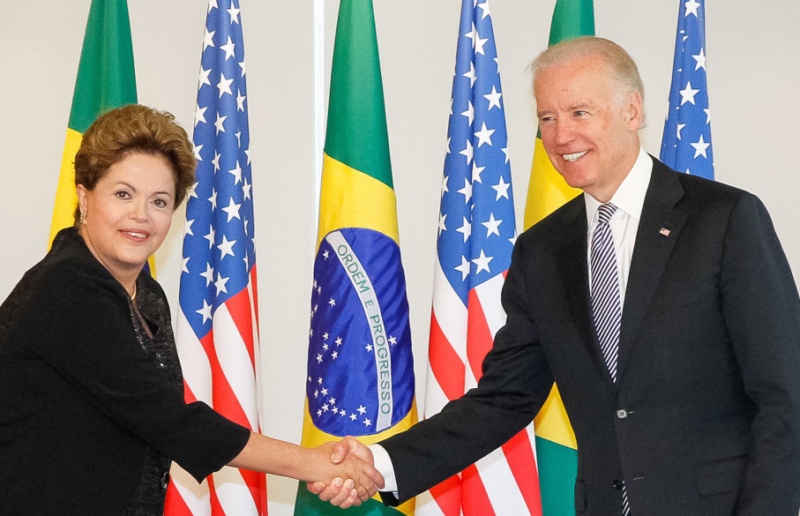A US-Brazil Respect Deficit
Brazil’s rising stature and influence will be on display when President Dilma Rousseff arrives in Washington this week.
On Tuesday, September 17, 2013, President Dilma Rousseff indefinitely postponed her much-anticipated state visit to the United States originally scheduled for October. The decision came after the release of leaks by Globo news regarding US spying on the president’s private communications and the state-owned energy company, Petrobras.
US-Brazil relations, however, will not likely be profoundly affected by the diplomatic row, stated Rubens Barbosa, Brazil’s former ambassador to the United States, and João Augusto de Castro Neves, senior analyst at the Eurasia Group, during a panel conversation at the Inter-American Dialogue on September 20, 2013.
Although Rousseff is the first head of state to ever cancel a state dinner at the White House, her decision was not completely unexpected. As Ambassador Barbosa noted, US President Barack Obama recently cancelled a planned trip to Russia amidst similar diplomatic tensions and Rousseff’s response was moderate compared to the demands of some in her own Workers’ Party (PT), many of whom urged the president to not only cancel the state dinner but to also recall Brazil’s ambassador in Washington.
According to Castro Neves, “symbols matter” and Rousseff’s decision was mainly only a symbolic gesture. As there were very few things of importance on the agenda for the visit, Brazil forwent little that it might have accomplished by coming.
Both Barbosa and Castro Neves agreed that domestic political considerations were a less important factor in Rousseff’s decision, as anti-American sentiment is only mild in Brazil and voters care little about foreign policy. As Castro Neves asserted, the more salient issue is the lack of importance placed on bilateral relations between the two countries.
According to Barbosa, for the relationship to grow and strengthen Brazil will need to revamp its image in Washington, while the United States will have to recognize Brazil’s strategic importance in the region. The increasing prevalence of industrial piracy, illegal immigration, and drug trafficking in Brazil might begin to align it more with the United States, noted Castro Neves, and the two countries stand to gain much from bilateral cooperation in addressing their common challenges. As both Castro Neves and Barbosa noted, the private sector, too, must play a key role in pushing the bilateral relationship into a more prominent and productive equilibrium.
Brazil’s rising stature and influence will be on display when President Dilma Rousseff arrives in Washington this week.
An upcoming meeting between Presidents Obama and Rousseff should not be expected to produce dramatic news or unexpected major breakthroughs.
President Rousseff is arriving in Washington on Monday to meet the US president. Nothing particularly important will happen.
 Roberto Stuckert Filho / Presidência da República
Roberto Stuckert Filho / Presidência da República